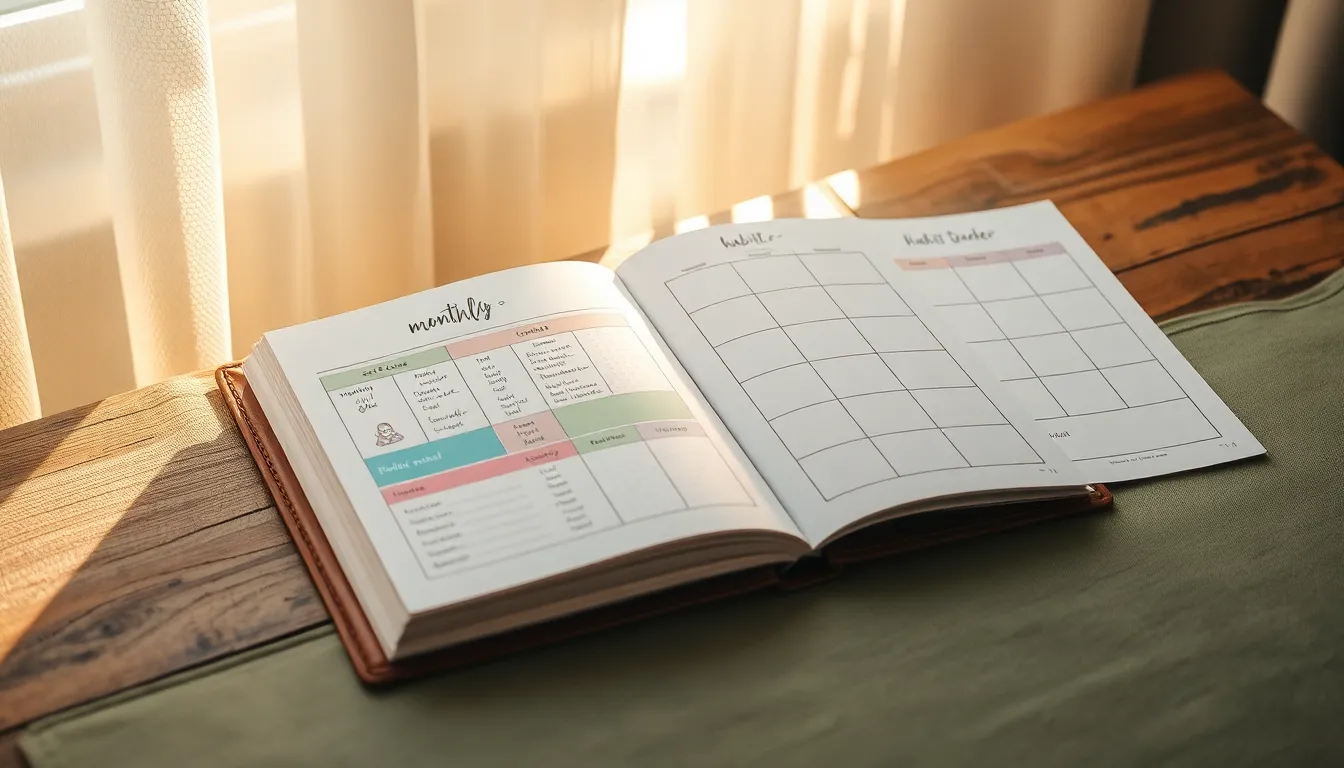Journaling is a powerful tool for personal growth, offering clarity and focus in our bustling lives. Organizing your journal effectively can transform it into a roadmap for success, guiding you towards your dreams with ease.
Dive into this guide to discover simple strategies to streamline your journaling habit. You’ll unlock techniques to enhance productivity and cultivate a sense of fulfillment, one page at a time.
Set Clear Journal Intentions

Clarifying your journaling purpose is essential. Begin by setting specific intentions for what you want to explore or achieve. This might include enhancing gratitude, processing emotions, or fostering creativity.
Use targeted prompts to guide your entries. Consider:
- “What am I grateful for today?”
- “What emotion am I feeling most strongly right now?”
These questions help maintain focus and deepen your journaling practice.
Select Effective Organization Tools

Start by choosing simple tools like bullet journals or digital apps. They help keep thoughts organized and accessible, making it easier to track progress and stay motivated.
Incorporate daily prompts to stimulate reflection. Try:
- “What am I grateful for today?”
- “What is my goal for tomorrow?”
These questions guide focus and clarity, enhancing your journaling practice.
Designate Specific Journal Sections

Carve out dedicated sections for specific themes like gratitude, goals, or reflections. This creates a structured space, making it easier to focus and maintain consistency.
Try simple prompts to kickstart your entries: “Today, I am grateful for…” or “My top goal this week is…” Keeping sections focused enhances clarity and motivation.
Create a Consistent Entry Routine

Establishing a consistent journaling routine is key to success. Choose a specific time each day, like morning or bedtime, ensuring it becomes a habit. Keep entries short to maintain consistency and avoid feeling overwhelmed.
Incorporate simple prompts for inspiration. Try:
- What am I grateful for today?
- How do I feel right now?
These prompts are easy to use and help deepen self-reflection. Stay flexible and adjust as needed to keep journaling enjoyable and sustainable.
Review and Reflect Regularly

Regular reflection enhances your journaling practice. Set aside time weekly to review past entries, noting patterns or insights. This habit fosters growth and clarity.
Use prompts like “What did I learn this week?” or “What am I grateful for?” to guide your reflection. These questions encourage deeper understanding and gratitude.
Conclusion: Creating Beautiful Outdoor Spaces
In the journey of nurturing relationships, a well-organized journal can be your guiding light. This article explored five key concepts to enrich your journaling practice: understanding your relationship goals, reflecting on emotional patterns, tracking communication habits, celebrating milestones, and setting future intentions. By structuring your journal around these concepts, you create a powerful tool for reflection and growth.
As a first step, why not dedicate a fresh page in your journal today to outline these concepts? Begin by jotting down your immediate relationship goals and any recent milestones. This initial action can pave the way for deeper insights and positive change.
To ensure these insights are always within reach, save or bookmark this article for easy reference. As you continue to navigate your relationships, having these strategies at your fingertips will be invaluable.
Remember, relationship success is a journey, not a destination. By committing to intentional journaling, you’re taking a proactive step toward more meaningful connections. Your relationships are worth the effort, and with this guide, you’re well-equipped to make them flourish. Stay inspired, and keep your journal close—it’s your compass on this beautiful path.

